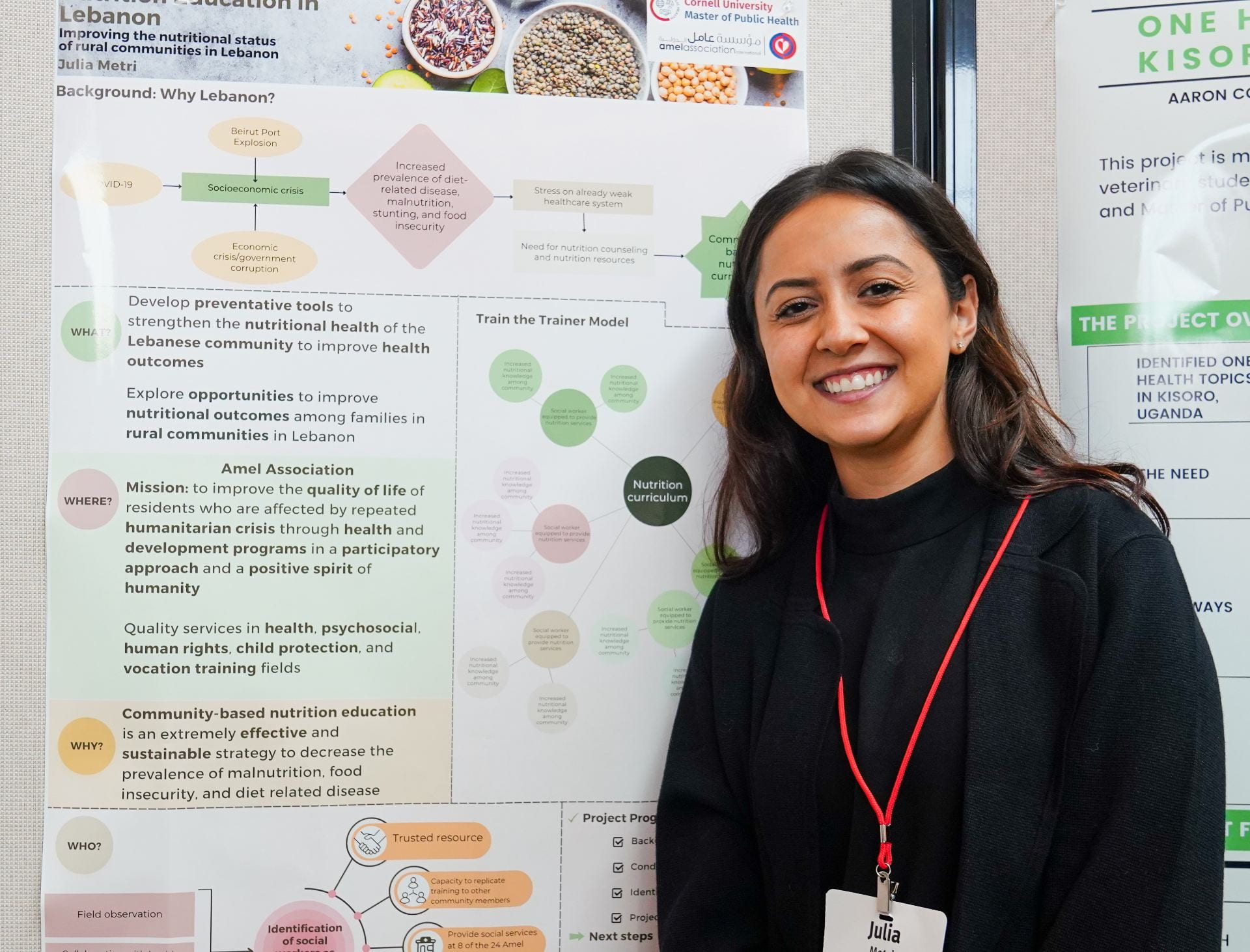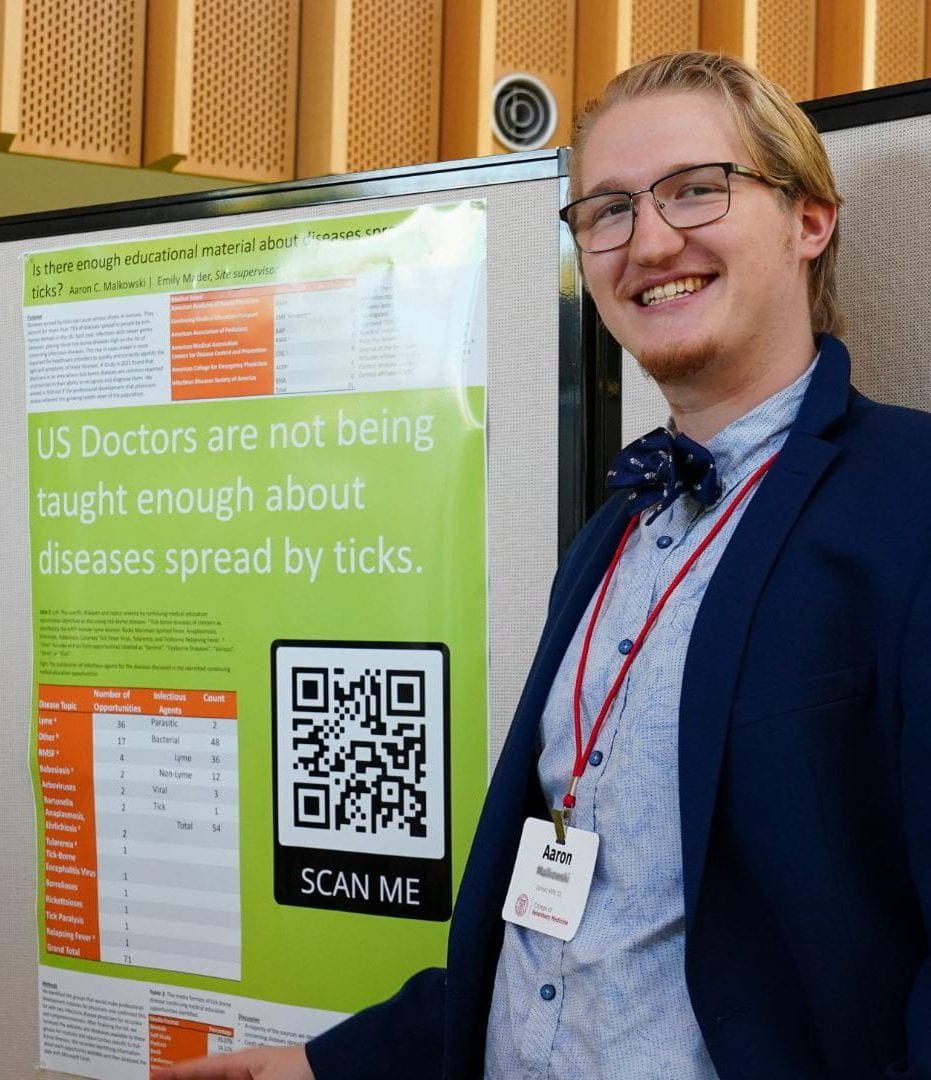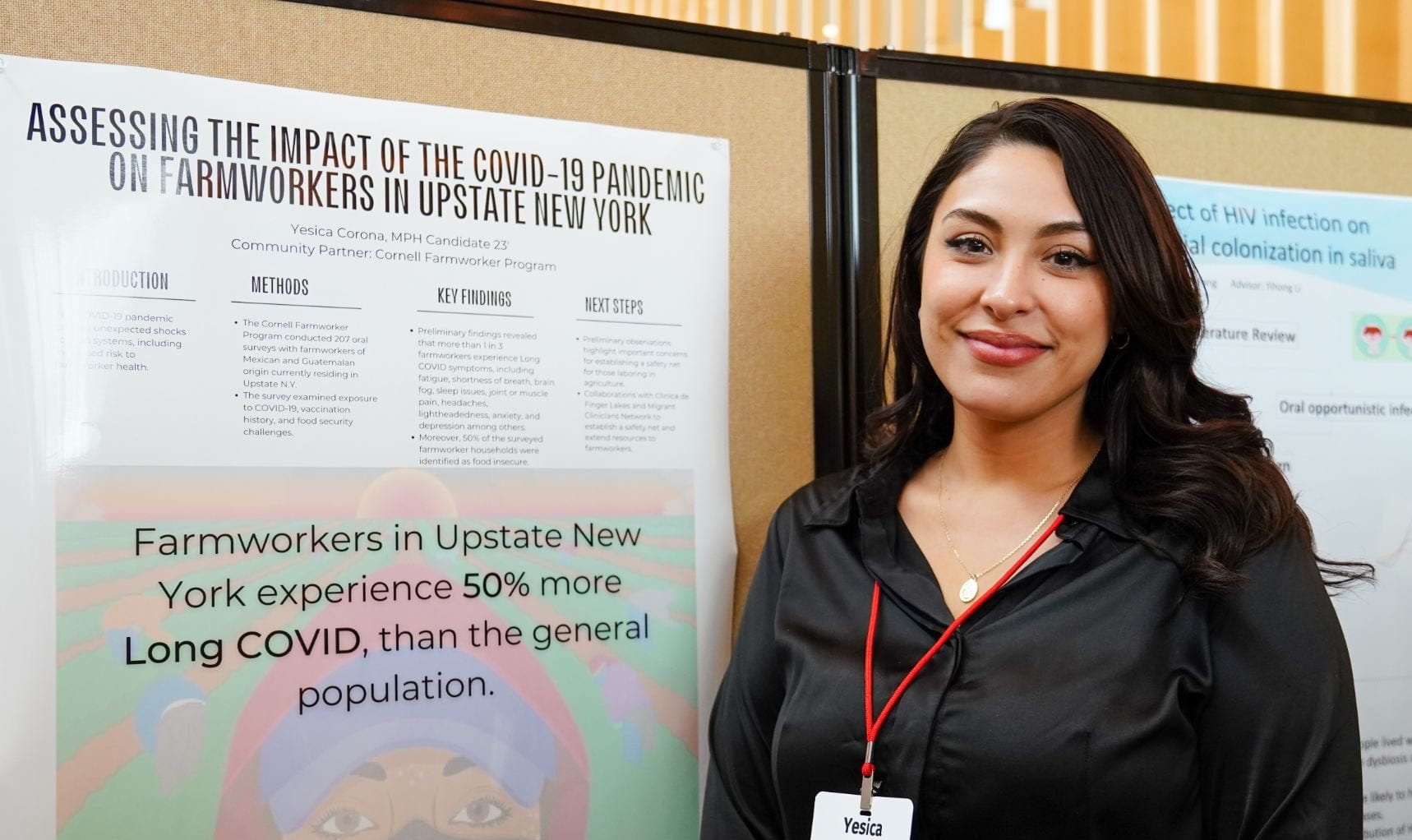Curriculum
Developing Public Health Leaders

Our curriculum prepares graduates to be strategic public health leaders, able to apply skills to diverse situations to address complex problems. Across our core courses, student develop strategic skills and core competencies that prepare them to become public health generalists, able to excel in achieving health equity and environmental justice by ensuring the essential services of public health. Many our courses also use community engaged learning approaches, which offer students the opportunity to contribute valuable work to community partners while gaining real-world experience and mentorship in the field.
Students also choose to specialize in one thematic area of emerging importance in public health: Emergency Preparedness & Management, Environment, Climate & Health, Infectious Disease Epidemiology, or Food Systems & Health. In these areas of specialization, students take four linked courses to build expertise, and complete an applied professional public health project that demonstrates the integration of core competencies and specialized skills.
Across each semester, students also engage in personal and professional development related to public health leadership, ethics, interprofessional team work, public speaking, data analytics, and high-quality writing.
Curriculum Overview
The Cornell Master of Public Health Program is a 52-credit, two-year program that spans four academic semesters. We also offer an accelerated program for individuals with advanced degrees or 2+ years of professional public health experience. Students admitted to the accelerated program take 43 credits over 12 months (starting in the summer).
Our curriculum is designed to help build and develop competence in 40 performance areas that are critical for public health. To demonstrate knowledge and skills and the ability to integrate and apply them in real-world settings, students complete and submit a portfolio with at least 25 products created in courses and through community-engaged projects. Students can then show examples of their work to potential employers, articulate knowledge and skills through these examples, and draw on this work for future applications.

Community-Engaged Learning
Applied Practice Experience (APEx)

The Applied Practice Experience (APEx) — designed in partnership with organizations across New York State, the United States, and around the world — is an opportunity for students to work with partner organizations and engage with a real-world public health project. Students apply knowledge and skills learned in the classroom, demonstrate competence, and contribute to public health, under the mentorship of a public health professional.
To complete the APEx, students complete either one major project over the summer, or a few smaller projects across semesters or breaks. As part of the APEx, students develop deliverables for partners and present their work in a public poster symposium. Deliverables might include outreach materials, summary reports, literature reviews, handbooks, lesson plans, stakeholder presentations, or another product requested by the partner. These deliverables also become part of each student’s professional portfolio.
Integrative Learning Experience (ILE)
In the final year of the Program, students develop a high-quality, substantive document written for a professional audience, that demonstrates integration of foundational and concentration-specific competencies. This Integrative Learning Experience (ILE) takes many forms. It could be a communication plan, training manual, policy white paper, evaluation framework, curriculum, or another substantive document that’s valuable to external stakeholders.
The ILE can build on a student’s previous work with community partners, such as the APEx, or can focus on a new topic area. In developing the final product, students work closely with a faculty mentor

Class-Based Projects
Across all MPH courses, faculty help students translate technical knowledge into real-world practice through use of applied assignments, case studies, community-engaged projects, and authentic assessments. Through these courses, students develop a portfolio of work that emulates that of a public health professional, including: a systems diagram, a logic model, a Gantt chart, a grant proposal, a monitoring and evaluation plan, a public health communication tool, a policy brief, an advocacy plan, an epidemiological profile, an evidence-informed project plan, and data analysis plans, outputs, and summaries.
